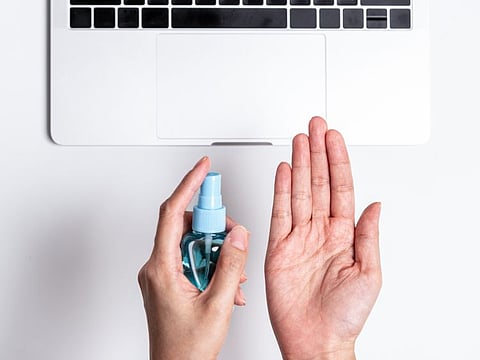Dubai's new ecommerce portal shows how to beat COVID-19 impact
A B2B platform, Tradeling initiated Plan B as COVID-19 derailed initial launch activity

Dubai: It took only 15 days after launch for Dubai’s brand new ecommerce portal, Tradeling, to realise it needed a Plan B. The COVID-19 outbreak ensured the B2B portal owned by Dubai Airport Free Zone Authority had to change course immediately.
“We launched on February 16 at the Gulf Food event, because F&B was the first category we wanted to get into,” said Muhammed Chbib, CEO at Tradeling said. “There we saw that Chinese companies were not participating… and we realized that something big was going on. Then the coronavirus outbreak took over… and all activity related to restaurants, hotels and catering died down completely.
“The other launch category for us was office supplies – but with people staying at home and working from there meant you didn’t have to order office supplies.”
Which was what prompted the change in course for Tradeling, where it pivoted away from F&B and office supplies to meeting the needs of the healthcare sector. And that sector, without any understatement, needed its supplies on a “that very day itself” basis.
Plan’s working
So, outside of medicines, Tradeling activated its supply channels for all other needs of the industry, including masks, gloves, hygiene and personalcare products. Does PPE (personal protective equipment) also figure in what the portal can source?
“Yes, there have been requests from the markets for protection equipment for medical workers – it’s something we are looking into,” said Chbib. “It’s difficult to build a supply chain while everyone is working from home.”
Tradeling would never have factored in a pandemic ahead of its launch… but the outbreak could have a decisive say in future prospects. In positive ways.
More transactions are going to head onto digital ways and stay there. That would be the case even in tradition-bound categories such as construction and automotive – apart from F&B and office supplies - that the platform intends to get into once the pandemic settles.
“Everything that is transactional in sourcing, supply chain management or customers will move online,” said Chbib. “The only question is how quickly we can convince people to do that. But with a little bit of support we have from Dubai Government, we have a good story to tell.”
Not overly reliant
But one thing Tradeling will not do is become totally reliant on government fed orders to keep it operational.
“When we set it up, we purposely made it not a “Dubai Government” project,” the CEO said. “Yes, we are associated with the Dubai X project run by Dafza. But the intention from the beginning was that Tradeling should be run as a tech startup – and the need was to be agile.
“We saw no point in launching the company, spend a few millions of dollars sourcing stuff from a tech vendor, and then keep relying on government transactions.
“Dubai and Dafza will remain silent investors in the background – they are completely out of the day-to-day operations.”
Since launch, the portal has engaged in one transaction from a Dubai Government agency, and that’s all, the CEO said.
Could turn competitive
So far, ecommerce in the Gulf has all been about retail-focussed online marketplaces such as Amazon and noon, as well as category-specific portals such as for fashion and tech gadgets.
But B2B could soon emerge as a significant contender in the overall ecommerce universe here. Some of the major Chinese portals are active in the Gulf, but Tradeling will hope to offset any of their future advances.
“Our original plan was to run with F&B and office supplies until the end of the year,” said Chbib. “Health and wellness was in any case the next category we wanted to get into - it’s a high turnover market with many transactions happening.
“Now that restaurants and hospitality are opening gradually, we will stick to that. Next year, add another two or three categories – we are looking at construction and automotive supplies, and fashion/apparel.
“Once you show clients the price and logistics advantage of going through us, they will continue to come back regularly. The prices we can get, they won’t get it by themselves.
“And we can start aggregating demand from multiple clients – say, order on behalf of five or six hotels and place orders for 10,000 items as opposed to a 1,000 or two. That way, the bottom-line benefit for clients works out to a couple of percentage points.
“That’s the beauty of global pricing – ensure pricing that no one else gets.”
What’s next for Tradeling?
Based on its current strategy, the portal will open talks with potential new investors by year-end. “From the get-go, the thinking was to place Tradeling on a broader footing,” said Muhammad Chbib, CEO. “It was never about limiting it to a one-sided project for Dubai Government. “We will specifically target investors from Saudi Arabia, which is also our next market for an entry, the Far East and Europe. But those are discussions we will have end of this year. “We have enough cash of our own to survive until end of next year.”
Sign up for the Daily Briefing
Get the latest news and updates straight to your inbox







